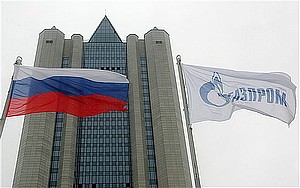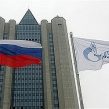
KREMLIN BRINGS FRENCH TOTAL ON BOARD GAZPROM’S SHTOKMAN PROJECT
Publication: Eurasia Daily Monitor Volume: 4 Issue: 137
By:

Russian energy giant Gazprom created a double business sensation last Friday by signing an agreement with French oil “champion” Total on developing the Shtokman gas field in the Barents Sea.
Part of that surprise was the reversal of the wholly unexpected October 2006 decision to cancel the international tender and reserve for Gazprom full ownership of the Shtokman project. Most experts concurred that such monopolistic ambition was unrealistic, as Gazprom had neither the expertise nor the technology to pursue this challenging enterprise. Indeed, since the start of the year, Moscow has sent a series of signals about inviting foreign partners to partake in particular elements of the project (Kommersant, April 5; Lenta.ru, July 9).
The second sensation was the choice of partner, since Total was widely considered an outsider among the key competitors. Moscow experts immediately pointed to a recent telephone conversation between Russian President Vladimir Putin and French President Nicolas Sarkozy as the decisive impetus for the French company (Vedomosti, Gazeta, July 13). There is, however, more to both sides of this breaking news than regular business strategy or political logic suggests.
Gazprom’s change of heart was not the consequence of a sober re-evaluation of its own capabilities, but a response to worries about the widening misbalance among stagnant production, fast growing domestic demand and binding commitments to expand export deliveries. The May 2007 agreement with Turkmenistan on Russia’s exclusive right to import its gas has somewhat eased this supply-demand problem, but Turkmen President Gurbanguly Berdimukhamedov remains eager to discuss export routes across the Caspian Sea or via Afghanistan (Novye izvestiya, July 9). That means that Gazprom cannot afford the luxury of holding Shtokman in reserve while prioritizing the development of the Yamal gas fields. The agreement with Total stipulates the start of commercial production in 2013, which is hardly realistic even if the required investments of some $15 billion are indeed made (Vremya novostei, July 13). The project could be set on a more solid basis if another partner with more experience in working in harsh Arctic conditions is engaged, and the Norwegian companies Statoil and Norsk Hydro are expected to be invited (Nezavisimaya gazeta, July 13). The key issue is about access to the reserves – and it is not entirely clear why Total has agreed on the rather restrictive conditions.
According to Alexei Miller, Gazprom’s recently re-elected CEO, a so-called special purpose vehicle (SPV) will be launched for developing the basic infrastructure for Shtokman, while Gazprom would keep the license and maintain full control over the flow of the produced natural gas. Total, with a 25% share in this SPV, would, in practical terms, perform the role of a service company, which is rather denigrating for a trans-national “major” (Expert, July 12). It could have been enticed by some incentives for its Kharyaga oil project, but the main reasons were probably political in nature (Gazeta.ru, July 13).
The energy business in Russia is indeed big politics through and through, and Putin’s phone chat with Sarkozy was only the latest twist in a complicated intrigue. With the departure of Gerhard Schroeder and Silvio Berlusconi from the European arena, Putin had to find new allies and bind them with energy networks. Personal chemistry with German Chancellor Angela Merkel may not work that well, but she understands perfectly the scale of gas interdependency. Putin has courted Italian Prime Minister Romano Prodi, who is also slightly isolated among the new generation of European politicians, but it was at the G-8 Heiligendamm summit last month that he managed to establish a good personal rapport with Sarkozy. So now Russia is building one gas pipeline across the Baltic Sea with Germany, another across the Black Sea with Italy, and is going to develop Shtokman with France (Polit.ru, July 12). Britain is missing in the picture, but the investigation of Alexander Litvinenko’s murder has strained relations, and BP has paid the price, being elbowed by Gazprom out of the Kovykta project (Expert, July 2).
Another knot of energy-political intrigues is tied by the EU Commission and the European Parliament, where various initiatives focused on reforming and liberalizing the energy market are being advanced. Gazprom is quite upset by the recent report on gas market prospects approved by the European Parliament, which aims at blocking its investments in distribution networks (Vedomosti, July 11); even more worrisome was the statement of Neelie Kroes, EU competition commissioner, that the yet-to-be adopted rules would strictly separate energy-producing companies from the distribution business, so Gazprom would have to sell its share in the Nord Stream pipeline (Rossiiskaya gazeta, June 18). German E.ON and French Gaz de France are fighting this legislation, and Gazprom can now count Total among its allies in this vital struggle.
Battles on the Western front are intricately connected with Gazprom’s domestic distension; for that matter, the European “majors” are positively impressed with the plan to raise internal gas prices to the level of export prices by 2011, which remains unthinkable for many consumers (Polit.ru, July 4). To the contrary, the aggressive expansion of the gas monopoly in the electricity sector appears entirely logical from the state capitalism point of view, but worrisome for the foreign partners who sympathize with Anatoly Chubais, the CEO of Unified Energy Systems, in his forlorn hope to rescue demonopolization (Vedomosti, July 13). The recently approved legislation that grants Gazprom the right to raise security forces for protecting its assets is completely mind-boggling for the Europeans, who cannot fail to see that their key supplier transforming into a malformed goliath (New Times, July 9).
Despite the aggressive ambitions, the lifespan of such oversized business creatures can be drastically shortened when their political life-support systems begin to malfunction. Putin’s fast-approaching departure could expose Gazprom to painful spasms and convulsions; it is hard to expect that Western partners would be protected by a pacta sunt servanda norm, commonly disregarded even in the period of “mature Putinism.”




